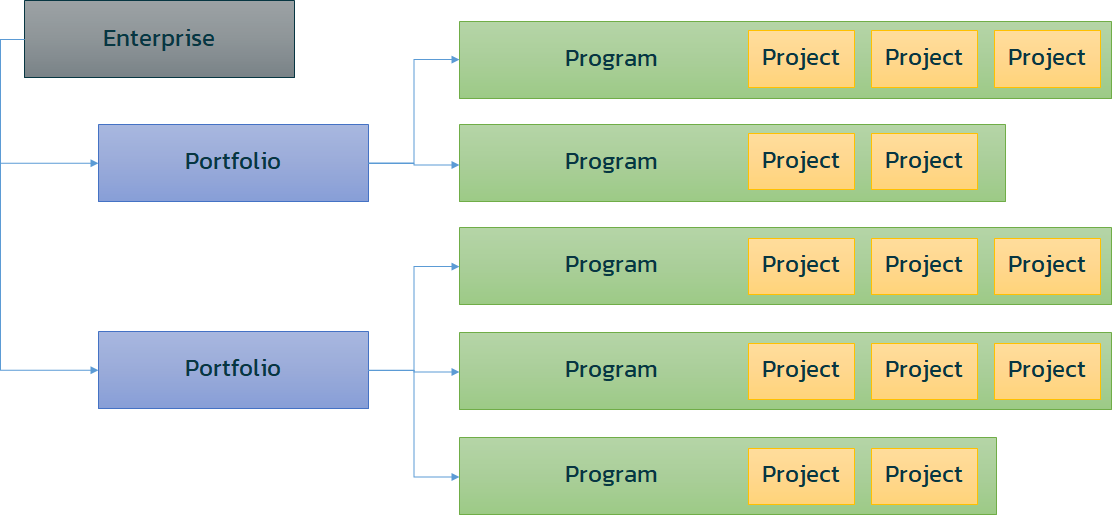As a firm believer in continuous improvement, I have always been monitoring the external environment to find new trends and equip myself with this knowledge. One of these interests was understanding more about Program and Portfolio Management.
The Value of Project Management
During the pursuit of this journey, I felt the inexorable gap in strategic leadership not truly understanding the value of
project management - let alone that of
program management. Many viewed
program management (that typically focuses on benefits delivery and benefits sustainment) the same as
project management (that focuses on a unique product or result). Mark Langley, the CEO of The Project Management Institute (PMI), explained how the lack of understanding of project management culture among chief executives such CFO leads to money being wasted on projects that fail to meet their strategic objectives. In addition, not having the appropriate structure for strong project management and not having a culture of project management is a recipe for organizational failure (Langley, 2015).

If the culture of project management that touches on scope, schedule, cost, quality, risk, stakeholder, procurement, human resources, communication, and integration can't address servicing customers, delivering good quality products, and retaining talent, what other professional discipline can be part of the operational excellence that touches on all areas of middle management to address customers, products, and people? It is no wonder Ireland (2006) claimed almost ten years back why executive management needs more project management skills than technical skills or delegation skills to effectively lead the organization. Several years later, Gale (2012) reports during a number of organizations as a case study to support the case for increasing role of project management.
Program Management Aligns Activities
As I went through the program management framework that lays the foundation for strategic benefits, coordinated planning, complex interdependencies, deliverable integration and optimized pacing, the role of program management in delivering value was critical. The focus of programs not only dealt with incremental benefits delivered through component projects but also on the consolidated benefits through structured governance to resolve critical constraints aligning the program efforts to organizational direction, identifying and responding proactively to risks across the projects and into operations, and leading, coordinating and collaborating multiple work streams. When such a program level leadership role is not identified to go through a program delivery framework, lots of productivity loss becomes transparent to the organizations.
Organizations today are changing dramatically. The need to respond to changes rapidly is an essential fabric to maintaining market share amidst the political, economical, societal, technical, legal, environmental, ethnic, and demographic changes and competitive edge. So, the need for executives to understand the project, program, and portfolio management is not a luxury but a necessity.
References
- Gale, S.F. (2012). The case for project management. PMI Executive Guide. Retrieved August 31, 2017, from https://www.pmi.org/-/media/pmi/documents/public/pdf/publications/pmi-executive-guide.pdf
- Irelend, L. (2006). Executive Management's role in project management. International Project Management Association. Retrieved August 31, 2017, from http://www.ipma-usa.org/articles/ExecRoles.pdf
- Langley, M.A. (2015, August 6). 3 Things CFOs Should Know about Project Management. CFO.com. Retrieved August 31, 2017, from http://ww2.cfo.com/business-planning/2015/08/3-things-cfos-know-project-management/
- President Barack Obama Signs the Program Management Improvement and Accountability Act (December, 2016). Project Management Institute. Retrieved August 31, 2017, from https://www.pmi.org/about/press-media/press-releases/president-barack-obama-signs-the-program-management-improvement-and-accountability-act